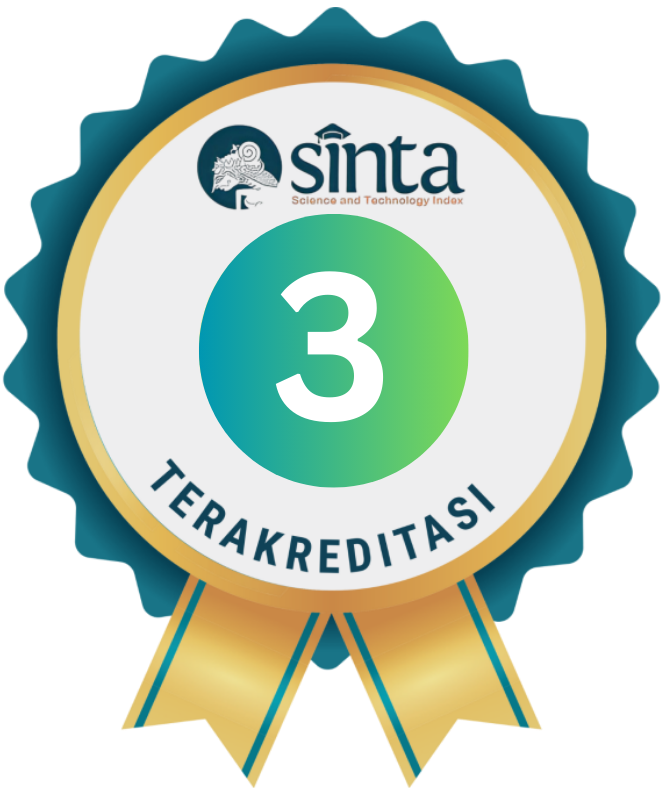The Development of Thematic Board Educational Game Tools to Train The Literacy Skills of Children 5-6 Years Old
DOI:
https://doi.org/10.31958/ijecer.v1i2.8156Keywords:
Educational Game Tools, The Literacy Skills, Early ChildhoodAbstract
The absence of thematic board educational game tools motivates this research to train the literacy skills of children aged 5-6 years. This study aims to determine the development and feasibility of thematic board educational game tools to improve the literacy skills of children aged 5-6 years. The research method used is Research and Development (R&D) which adopts the Borg and Gall development stages. The results of this research and development are: 1) Development of the thematic board educational game tool through several stages, namely: a) seeing potential and problem identification b) research and data collection, c) product design e) product revision, d) validation and trial phase small scale and large scale. The results of the validation of the material experts prove 2 with a category is very feasible. The average media expert validation assessment is the very feasible category. The assessment of small class trials in the very feasible category, large-scale trials in the very feasible category. The average teacher response questionnaire is in the very feasible category.References
Akbar, A., & Fajri, N. (2022). Applying Microsoft Office 365 in learning Islamic Education (PAI) amid Covid-19 Pandemic. Journal of Islamic Education Students (JIES), 2(1), 31. https://doi.org/10.31958/jies.v2i1.4544
Aqila, L. A. R., & Kamariah, A. B. (2019). Effects of Play on the Social Development of Preschool Children. Creative Education, 10, 2640–2648. https://doi.org/10.4236/ce.2019.1012191
Azzahra, R., Fitriani, W., Desmita, D., & Warmansyah, J. (2021). Keterlibatan Orang Tua di Minangkabau dalam PAUD pada Masa Pandemi Covid-19. Jurnal Obsesi : Jurnal Pendidikan Anak Usia Dini, 6(3), 1549–1561. https://doi.org/10.31004/obsesi.v6i3.1796
Daniels, E., Mandleco, B., & Luthy, K. E. (2012). Assessment, management, and prevention of childhood temper tantrums. Journal of the American Academy of Nurse Practitioners, 24(10), 569–573. https://doi.org/10.1111/j.1745-7599.2012.00755.x
Hidayati, W. R., & Warmansyah, J. (2021). Pendidikan Inklusi Sebagai Solusi dalam Pelayanan Pendidikan Untuk Anak Berkebutuhan Khusus. Aulad: Journal on Early Childhood, 4(3), 74–79. https://doi.org/10.31004/aulad.v4i3.161
Khamidah, A., & Sholichah, N. I. (2022). Digital Pop Up Learning Media for Early Childhood Cognitive. Indonesian Journal of Early Childhood Education Research, 1(1), 11–19. https://doi.org/10.31958/ijecer.v1i1.5833
Listriani, A., Hapidin, H., & Sumadi, T. (2020). Kemampuan Keaksaraan Anak Usia 5-6 Tahun dalam Penerapan Metode Spalding di TK Quantum Indonesia. Jurnal Obsesi : Jurnal Pendidikan Anak Usia Dini, 5(1), 591. https://doi.org/10.31004/obsesi.v5i1.680
Montroy, J. J., Bowles, R. P., & Skibbe, L. E. (2016). The effect of peers’ self-regulation on preschooler’s self-regulation and literacy growth. Journal of Applied Developmental Psychology, 46, 73–83. https://doi.org/10.1016/j.appdev.2016.09.001
Nisak, F. F., Munawaroh, H., & Abbas, S. (2022). The Effect of “ Kids Moderations ” Interactive Multimedia on Religious Moderation Attitudes in Early Childhood. Indonesian Journal of Early Childhood Education Research, 1(1), 38–47. https://doi.org/10.31958/ijecer.v1i1.5811
Nuha, A. U., & Munawaroh, H. (2022). Effectiveness of Rural Youth Tutoring Activity in Increasing Children ’ s Learning Motivation in Pandemic Era. Indonesian Journal of Early Childhood Educational Research, 1(1), 20–28. https://doi.org/10.31958/ijecer.v1i1.5808
Pa’indu, S., Sinaga, R., & Keriapy, F. (2021). Studi Kecerdasan Visual-Spasial Pada Anak Usia 5-6 Tahun Melalui Sentra Balok. SHAMAYIM: Jurnal Teologi Dan Pendidikan Kristiani, 1(1), 78–91. https://doi.org/10.51615/sha.v1i1.6
Pratiwi, K. W., Gading, I. K., & Antara, P. A. (2021). Instrumen penilaian kemampuan membaca permulaan pada anak usia dini. Journal for Lesson and Learning Studies, 4(1), 33–38.
Priyanti, N., & Jhoni Warmansyah. (2021). The Effect of Loose Parts Media on Early Childhood Naturalist Intelligence. JPUD - Jurnal Pendidikan Usia Dini, 15(2), 239–257. https://doi.org/10.21009/jpud.152.03
Rahayu, T., & Mayasari, T. (2018). Profil Kemampuan Awal Literasi Digital dalam Pembelajaran Fisika Siswa SMK Kota Madiun. Seminar Nasional Quantum, 25, 431.
Rahmawati, S., Dasril, D., Irman, I., & Yulitri, R. (2021). Students’ Competency as Candidates of Guidance and Counseling Counselors in the Implementation of Group Guidance Services. Journal of Islamic Education Students (JIES), 1(2), 87. https://doi.org/10.31958/jies.v1i2.3160
Resmini, S., Satriani, I., & Rafi, M. (2021). Pelatihan penggunaan aplikasi canva sebagai media pembuatan bahan ajar dalam pembelajaran bahasa Inggris. Abdimas Siliwangi, 4(2), 335–343. https://doi.org/http://dx.doi.org/10.22460/as.v4i2p%25p.6859
Sabri, A., Warmansyah, J., Amalina, A., & Aswirna, P. (2020). Implementasi Pengintegrasian Keislaman Dalam Pengenalan Konsep Matematika Anak Usia Dini. Math Educa Journal, 4(1), 23–30. https://doi.org/10.15548/mej.v4i1.1240
Saleha, L., Baharun, H., & Utami, W. T. (2022). Implementation of Digital Literacy to Develop Social Emotional in Early Childhood. Indonesian Journal of Early Childhood Education Research, 1(1), 1. https://doi.org/10.31958/ijecer.v1i1.5834
Sezgin, E., & Demiriz, S. (2019). Effect of play-based educational programme on behavioral self-regulation skills of 48-60 month-old children. Early Child Development and Care, 189(7), 1100–1113. https://doi.org/10.1080/03004430.2017.1369972
Suyono, Titik, H., & Wulandari, I. S. (2017). Implementasi Gerakan Literasi Sekolah pada Pembelajaran Tematik di Sekolah Dasar. Sekolah Dasar: Kajian Teori Dan Praktik Pendidikan, 26(2), 116–123.
Warmansyah, J., Yuningsih, R., Sari, M., Urrahmah, N., Data, M. R., & Idris, T. (2022). Implementation of the Minangkabau Culture Curriculum at Kindergarten. Aulad: Journal on Early Childhood, 5(2), 228–234. https://doi.org/10.31004/aulad.v5i2.376
Wulandani, C., & Putri, M. A. (2022). Implementing Project-Based Steam Instructional Approach in Early Childhood Education in 5. 0 Industrial Revolution Era. 1(1), 29–37. https://doi.org/10.31958/ijecer.v1i1.5819
Zati, V. D. A. (2018). Upaya Untuk Meningkatkan Minat Literasi Anak Usia Dini. Bunga Rampai Usia Emas, 4(1), 18–21.
Zubaidah, S. (2019). STEAM (Science, Technology, Engineering, Arts, and Mathematics): Pembelajaran untuk Memberdayakan Keterampilan Abad ke-21. Seminar Nasional Matematika Dan Sains, September, 1–18.
Aqila, L. A. R., & Kamariah, A. B. (2019). Effects of Play on the Social Development of Preschool Children. Creative Education, 10, 2640–2648. https://doi.org/10.4236/ce.2019.1012191
Azzahra, R., Fitriani, W., Desmita, D., & Warmansyah, J. (2021). Keterlibatan Orang Tua di Minangkabau dalam PAUD pada Masa Pandemi Covid-19. Jurnal Obsesi : Jurnal Pendidikan Anak Usia Dini, 6(3), 1549–1561. https://doi.org/10.31004/obsesi.v6i3.1796
Daniels, E., Mandleco, B., & Luthy, K. E. (2012). Assessment, management, and prevention of childhood temper tantrums. Journal of the American Academy of Nurse Practitioners, 24(10), 569–573. https://doi.org/10.1111/j.1745-7599.2012.00755.x
Hidayati, W. R., & Warmansyah, J. (2021). Pendidikan Inklusi Sebagai Solusi dalam Pelayanan Pendidikan Untuk Anak Berkebutuhan Khusus. Aulad: Journal on Early Childhood, 4(3), 74–79. https://doi.org/10.31004/aulad.v4i3.161
Khamidah, A., & Sholichah, N. I. (2022). Digital Pop Up Learning Media for Early Childhood Cognitive. Indonesian Journal of Early Childhood Education Research, 1(1), 11–19. https://doi.org/10.31958/ijecer.v1i1.5833
Listriani, A., Hapidin, H., & Sumadi, T. (2020). Kemampuan Keaksaraan Anak Usia 5-6 Tahun dalam Penerapan Metode Spalding di TK Quantum Indonesia. Jurnal Obsesi : Jurnal Pendidikan Anak Usia Dini, 5(1), 591. https://doi.org/10.31004/obsesi.v5i1.680
Montroy, J. J., Bowles, R. P., & Skibbe, L. E. (2016). The effect of peers’ self-regulation on preschooler’s self-regulation and literacy growth. Journal of Applied Developmental Psychology, 46, 73–83. https://doi.org/10.1016/j.appdev.2016.09.001
Nisak, F. F., Munawaroh, H., & Abbas, S. (2022). The Effect of “ Kids Moderations ” Interactive Multimedia on Religious Moderation Attitudes in Early Childhood. Indonesian Journal of Early Childhood Education Research, 1(1), 38–47. https://doi.org/10.31958/ijecer.v1i1.5811
Nuha, A. U., & Munawaroh, H. (2022). Effectiveness of Rural Youth Tutoring Activity in Increasing Children ’ s Learning Motivation in Pandemic Era. Indonesian Journal of Early Childhood Educational Research, 1(1), 20–28. https://doi.org/10.31958/ijecer.v1i1.5808
Pa’indu, S., Sinaga, R., & Keriapy, F. (2021). Studi Kecerdasan Visual-Spasial Pada Anak Usia 5-6 Tahun Melalui Sentra Balok. SHAMAYIM: Jurnal Teologi Dan Pendidikan Kristiani, 1(1), 78–91. https://doi.org/10.51615/sha.v1i1.6
Pratiwi, K. W., Gading, I. K., & Antara, P. A. (2021). Instrumen penilaian kemampuan membaca permulaan pada anak usia dini. Journal for Lesson and Learning Studies, 4(1), 33–38.
Priyanti, N., & Jhoni Warmansyah. (2021). The Effect of Loose Parts Media on Early Childhood Naturalist Intelligence. JPUD - Jurnal Pendidikan Usia Dini, 15(2), 239–257. https://doi.org/10.21009/jpud.152.03
Rahayu, T., & Mayasari, T. (2018). Profil Kemampuan Awal Literasi Digital dalam Pembelajaran Fisika Siswa SMK Kota Madiun. Seminar Nasional Quantum, 25, 431.
Rahmawati, S., Dasril, D., Irman, I., & Yulitri, R. (2021). Students’ Competency as Candidates of Guidance and Counseling Counselors in the Implementation of Group Guidance Services. Journal of Islamic Education Students (JIES), 1(2), 87. https://doi.org/10.31958/jies.v1i2.3160
Resmini, S., Satriani, I., & Rafi, M. (2021). Pelatihan penggunaan aplikasi canva sebagai media pembuatan bahan ajar dalam pembelajaran bahasa Inggris. Abdimas Siliwangi, 4(2), 335–343. https://doi.org/http://dx.doi.org/10.22460/as.v4i2p%25p.6859
Sabri, A., Warmansyah, J., Amalina, A., & Aswirna, P. (2020). Implementasi Pengintegrasian Keislaman Dalam Pengenalan Konsep Matematika Anak Usia Dini. Math Educa Journal, 4(1), 23–30. https://doi.org/10.15548/mej.v4i1.1240
Saleha, L., Baharun, H., & Utami, W. T. (2022). Implementation of Digital Literacy to Develop Social Emotional in Early Childhood. Indonesian Journal of Early Childhood Education Research, 1(1), 1. https://doi.org/10.31958/ijecer.v1i1.5834
Sezgin, E., & Demiriz, S. (2019). Effect of play-based educational programme on behavioral self-regulation skills of 48-60 month-old children. Early Child Development and Care, 189(7), 1100–1113. https://doi.org/10.1080/03004430.2017.1369972
Suyono, Titik, H., & Wulandari, I. S. (2017). Implementasi Gerakan Literasi Sekolah pada Pembelajaran Tematik di Sekolah Dasar. Sekolah Dasar: Kajian Teori Dan Praktik Pendidikan, 26(2), 116–123.
Warmansyah, J., Yuningsih, R., Sari, M., Urrahmah, N., Data, M. R., & Idris, T. (2022). Implementation of the Minangkabau Culture Curriculum at Kindergarten. Aulad: Journal on Early Childhood, 5(2), 228–234. https://doi.org/10.31004/aulad.v5i2.376
Wulandani, C., & Putri, M. A. (2022). Implementing Project-Based Steam Instructional Approach in Early Childhood Education in 5. 0 Industrial Revolution Era. 1(1), 29–37. https://doi.org/10.31958/ijecer.v1i1.5819
Zati, V. D. A. (2018). Upaya Untuk Meningkatkan Minat Literasi Anak Usia Dini. Bunga Rampai Usia Emas, 4(1), 18–21.
Zubaidah, S. (2019). STEAM (Science, Technology, Engineering, Arts, and Mathematics): Pembelajaran untuk Memberdayakan Keterampilan Abad ke-21. Seminar Nasional Matematika Dan Sains, September, 1–18.
Downloads
Published
2023-01-14
Issue
Section
Articles
License
Copyright (c) 2023 Nita Dwi Safitri, Uswatun Hasanah, Farhatin Masruroh, Khulusinniyah Khulusinniyah, Jaime Dodd

This work is licensed under a Creative Commons Attribution-NonCommercial-ShareAlike 4.0 International License.
Authors who publish with Indonesian Journal of Early Childhood Educational Research agree to the following terms:
- Authors retain copyright and grant the journal right of first publication with the work simultaneously licensed under a?áCreative Commons Attribution-NonCommercial-ShareAlike 4.0 International License?á(CC BY-NC-SA 4.0) that allows others to share the work with an acknowledgment of the work's authorship and initial publication in this journal.
- Authors are able to enter into separate, additional contractual arrangements for the non-exclusive distribution of the journal's published version of the work (e.g., post it to an institutional repository or publish it in a book), with an acknowledgment of its initial publication in this journal.









